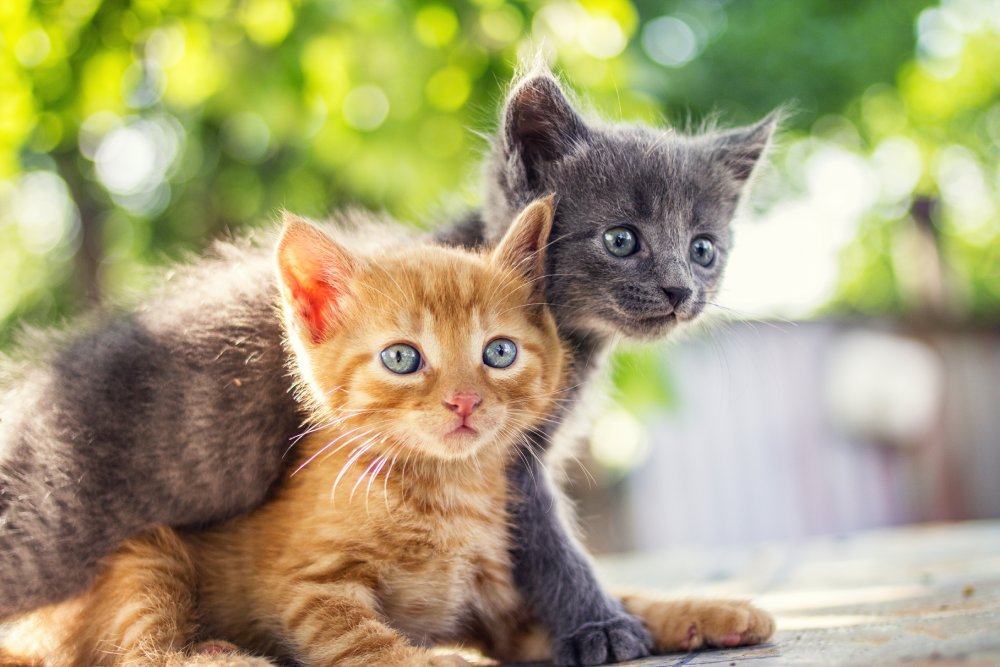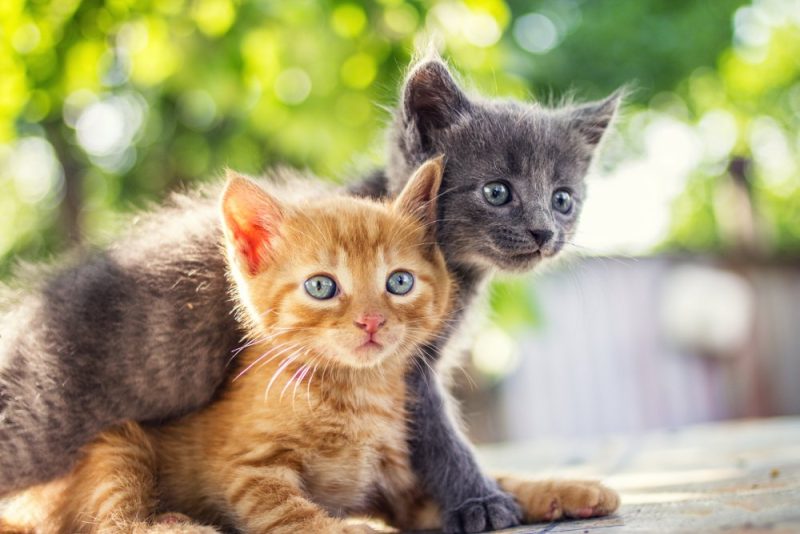Click to Skip Ahead
Perhaps you’ve just brought home your first kitten and are wondering when to get them fixed. This is particularly important if you have other intact cats in your home or if you plan on allowing your kitten to go outside.
Both male and female kittens are able to mate, and females can become pregnant as early as 4 months of age, as a rule of thumb.
This means kittens can give birth to a litter of kittens before they are 6 months old, which emphasizes how essential spaying and neutering are!
When Does a Female Cat First Go Into Heat?
The average cat tends to go into heat by ages 6 to 9 months, but some kittens can go through their first heat cycle at 4 months or as late as 12 months of age.
Various factors influence when a kitten first goes into heat. Certain environmental factors, such as being in the presence of a potential mate (unneutered male) and even outside temperature, can cause a heat cycle. Large cats, such as Maine Coons, take longer to mature, so they might be as old as 12 months by the time that they get their first heat cycle.
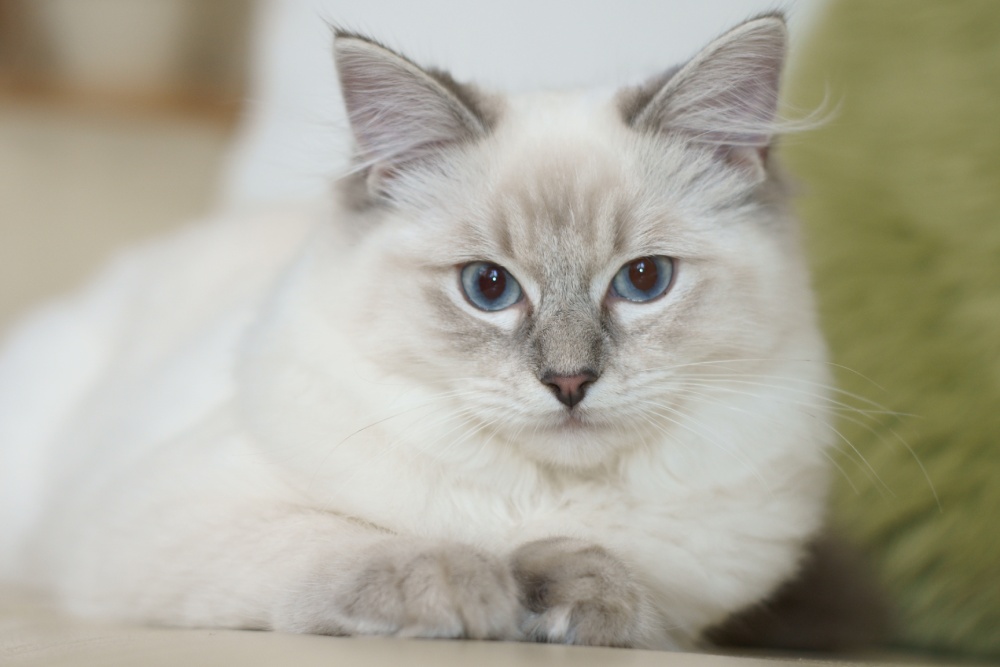
How Often Do Cats Go Into Heat?
An unspayed female cat (referred to as a queen until she is spayed) goes into heat as often as every 2 to 3 weeks, usually from mid-January to mid-October. As long as she doesn’t become pregnant, she’ll just keep going into heat. Queens can go into heat up to 20 times per year.
Each heat cycle lasts an average of 7 days but can last as few as 2 days or as long as 19 days.
How Does the Heat Cycle Work?
Queens go through five phases during their heat cycle:
- Proestrus: The first phase lasts only 1 to 2 days, but you won’t notice any real change in behavior.
- Estrus: This is when the cat is in heat, and you’ll see behavioral changes. This is also when your cat can be impregnated. It lasts an average of 7 days.
- Interestrus: This lasts 2 to 19 days until proestrus begins again. Interestrus occurs if the queen doesn’t ovulate.
- Diestrus: This stage happens when the queen ovulates and when she mates with a male.
- Anestrus: This cycle is essentially the lack of any heat cycle. Going into heat depends on the number of daylight hours. If there are fewer daylight hours (such as in the winter), queens will go into anestrus.
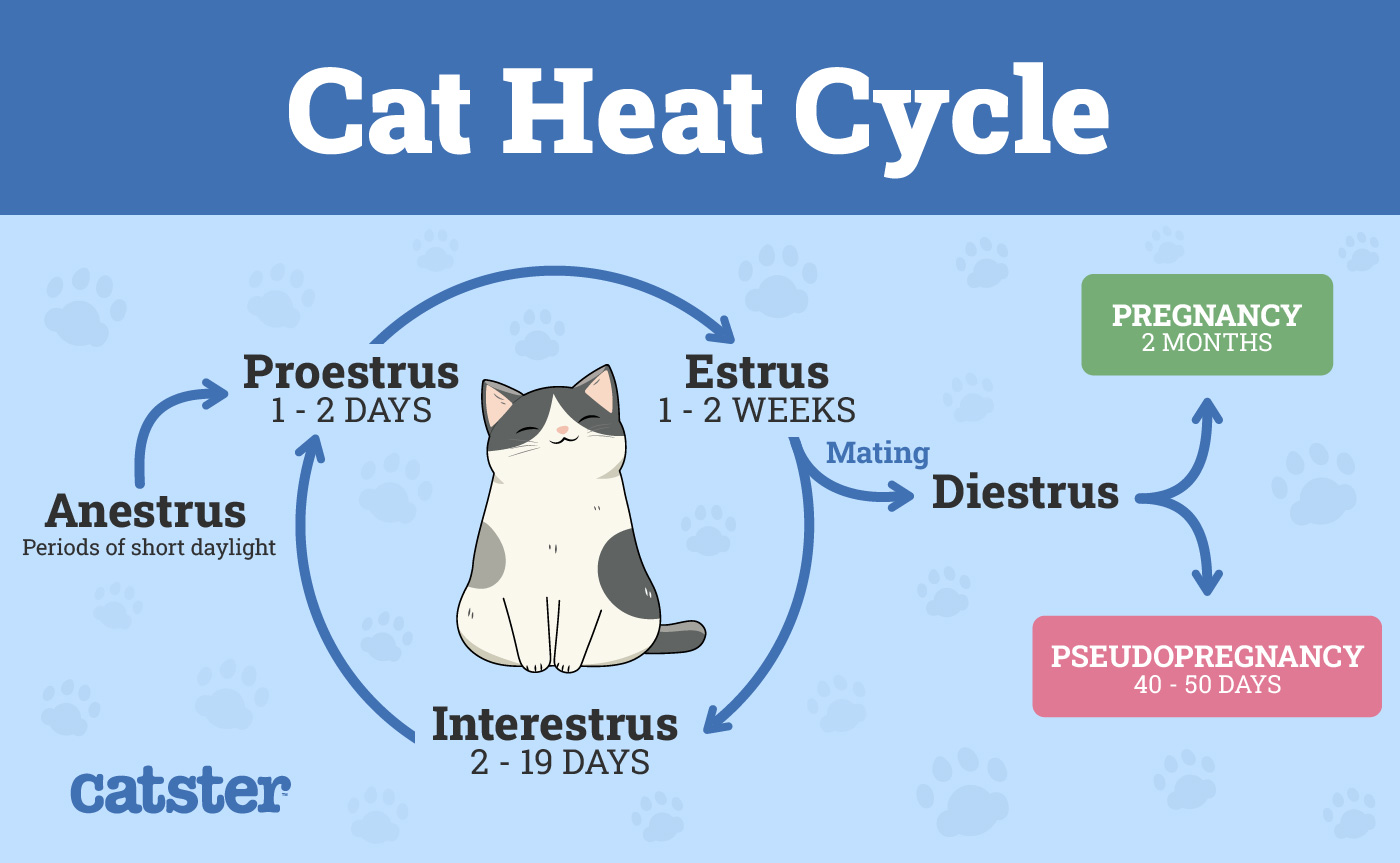
Signs of a Cat in Heat
When your cat is going through the estrus phase, she will display a few of the following signs:
- Making frequent and loud vocalizations
- Being restless and overly affectionate
- Frequently rolling on the floor
- Excessively grooming
- Elevating her hind quarters with her tail held to the side
- Attempting to escape outside
- Spraying urine on surfaces
At What Age Can a Male Cat Impregnate a Female Cat?
Since female kittens can start mating at 4 months old, can the same be true of male kittens? Can a 4-month-old male kitten impregnate a female?
Yes, they can. Male kittens can reach sexual maturity as early as 3-4 months old, but the average age tends to be closer to 6 months. When a male is ready to mate, you’ll notice behavior changes like:
- Loud and persistent vocalizations
- Territorial aggression with other males
- Roaming and pacing
- Attempts to escape
- Territorial spraying
- Attempts to mate (this can be with blankets or stuffed animals if there isn’t an available female)
- Being overly affectionate
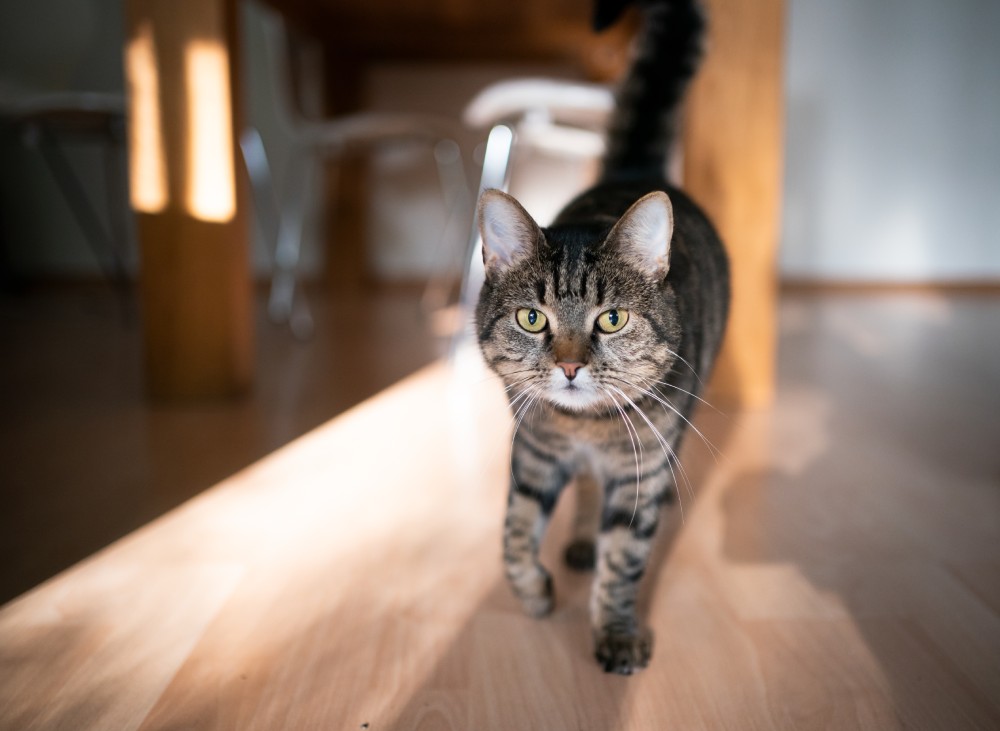
How Can You Tell If Your Cat Has Mated With Another?
The best way to tell if your queen has mated with a male, or tom, is if she starts showing pregnancy signs:
- Sudden end of the heat cycle (no signs that she’s in heat)
- Increased affection
- Sleeping more often
- Weight gain
- Increased appetite
- Swollen and notably pink nipples (called “pinking up”)
The average length of a pregnancy is about 63 to 65 days, and she can become pregnant again shortly after giving birth.
Should You Let Your Cat Have One Litter Before Spaying?
Some cat owners believe that they should allow their female cat to become pregnant and have a litter before being spayed. It’s thought that it is somehow healthier for a queen to have this one litter, but the opposite is true.
Female cats aren’t fully grown until they reach about 12 months of age (depending on their breed and size), and becoming pregnant before being fully mature can put a strain on their bodies. Since the cat is still growing, supporting a healthy pregnancy can make it more challenging for her.
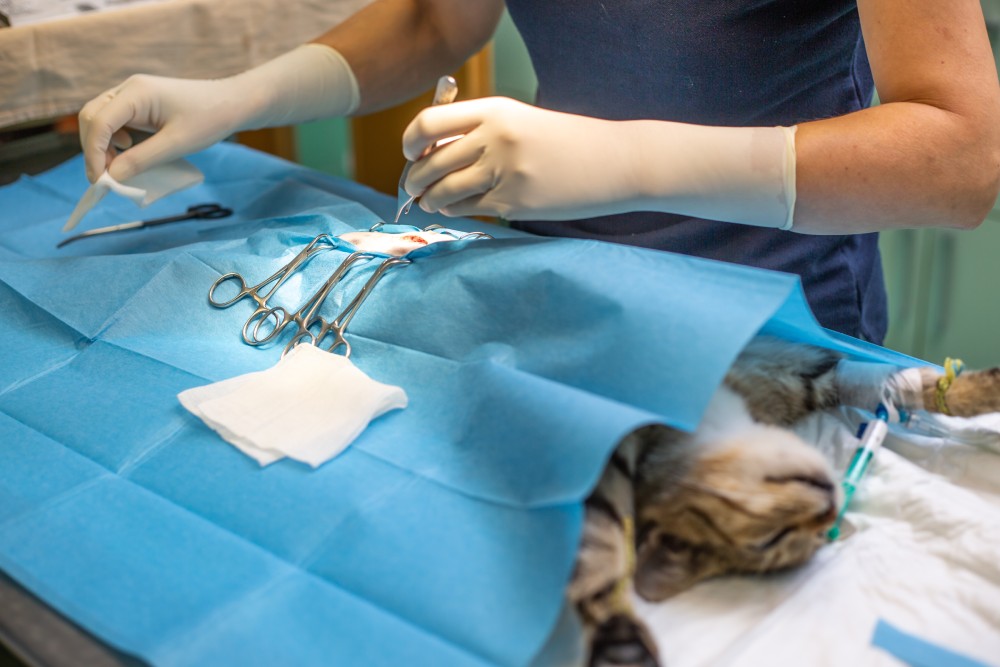
Why Should You Spay or Neuter Your Kitten?
Spaying/neutering your kitten is essential, particularly for cutting down on the homeless cat population.
If you plan to have an outdoor cat, it is doubly important to have your kitten fixed. Caring for a pregnant queen is highly stressful, expensive, and not as romantic as some people might think. In fact, as expensive as purebred cats are, breeders don’t make much money given the time and money that they put into the care of their cats and kittens.
If you have a male, allowing him to roam the neighborhood when still intact is highly risky. They will likely impregnate a significant number of females (and the homeless cat population is already a huge issue), and their behavioral issues at home will be frustrating! They will yowl, spray your home with smelly urine, and be more aggressive. There’s also the chance of your outdoor cat suffering injury through fighting or getting hit by cars while roaming.
Spaying a female before her first heat significantly reduces the chances of mammary cancer, uterine cancer, and pyometra from occurring. In male cats, neutering can prevent testicular cancer.
Conclusion
Since kittens can be as young as 3-4 months old when they’re ready to mate, it’s vital that you keep the males and females separated. Even if they are related, intact male and female cats will still mate with each other. Spaying and neutering your kitten is usually the best option, so you should speak to your vet to get a better idea of what it entails.
Females going into estrus frequently is not comfortable for them, and it can be uncomfortable to watch too. Unless you plan on becoming a serious breeder, take your kitten to your vet for spaying or neutering. It’s truly the best option for everyone involved.
Featured Image Credit: CebotariN_Shutterstock

